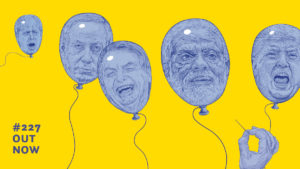A Diplomatic Dwarf (March/Spring 2020)
A decades-long diplomatic agenda to secure Brazil as a world player has unravelled rapidly since far-right president Jair Bolsonaro took office on 1 January last year. Under Lula da Silva’s presidency (2003-2011), Brazil was instrumental in creating the BRlCS group of emerging economies alongside Russia, lndia, China and South Africa. It also helped to implement a series of South-South initiatives and played a significant role in negotiating international agreements. Bolsonaro’s government, in contrast, has bet on obscurantism and sought to align itself with the global far right, including through informal partnerships with lslamic dictatorships such as those of Saudi Arabia and Qatar.
The approach echoes Brazil’s new domestic agenda. ln June 2019, for example, foreign affairs minister Ernesto Araújo ordered that any reference to ‘gender’ be removed from official documents and made an uncompromising defence of the term ‘family’ as including a father and mother only, following a conservative and homophobic Christian mentality.
These moves translated into several votes at the UN Human Rights Council against sexual and reproductive rights, made alongside conservative and fundamentalist states in clear divergence from traditional allies and Brazil’s own diplomatic tradition.
Full article at Red Pepper Magazine’s Spring edition. You can download the full article by clicking on the green button above. Date of publication: 05/03/2020



Deixe um comentário